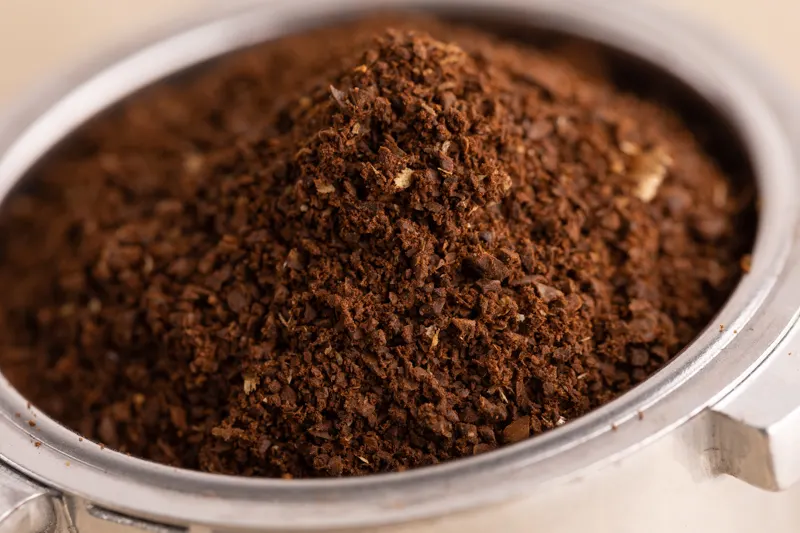Coffee is probably one of the most universal pantry staples. So many people start each day with a nice hot cup brewed at home, or even a trip to the local coffee shop. Though despite how much coffee people drink on a daily basis, it seems that not much is known about storing this magic bean. Can ground coffee go bad? How should you store ground coffee, and for how long will it last?

Can Ground Coffee Go Bad?
Coffee is actually roasted beans, and like all beans, ground coffee can go bad. The roasting process actually eliminates the potential for many contaminants, as the moisture level of coffee becomes incredibly low. This means that you won’t really have to worry about mold or bacteria growing on your coffee grounds, unless too much moisture is introduced to the grounds while they’re being stored.
What typically happens to coffee as it ages, is the flavor compounds disappear over time. So, while the coffee might still be safe to drink, it won’t taste very good. The shelf life of ground coffee is three to five months at room temperature, whether or not the package has been opened. Unopened coffee can be stored in the freezer long term, and will have a shelf life of up to two years. Once the package has been opened, the shelf life reduces to five months, even in the freezer.

Image used under Creative Commons from epSos .de
How to Store Ground Coffee
If you’ve purchased whole beans, it’s best to keep them intact and only grind them until you plan on using them. Grinding the coffee increases the surface area, and therefore the exposure to oxygen, light and heat.
Of course, buying ground coffee is a lot more convenient for most people. The best way to store ground coffee is in an airtight container, away from moisture, light and heat. Preventing exposure to the air is important to keep the flavor compounds intact. A tightly sealing glass jar, or one of those airtight kitchen storage containers is ideal. If you don’t have a sealable container available, make sure to wrap up the bag tightly and secure it with a rubber band, or tape.
Contrary to popular belief, freezing is not actually the best way to store coffee for daily use. Repeatedly removing the ground coffee from the freezer and then replacing it will introduce excess moisture to the grounds. This moisture will impart a cardboard taste to the coffee, making for an unpleasant experience.
Freezing ground coffee or coffee beans is fine for long term storage, assuming the container won’t be regularly opened. If you’ve bought ground coffee in bulk and want to keep it fresher for a longer time, just grab a bunch of freezer bags and a permanent marker. Portion out a week’s worth of coffee into each freezer bag, tightly seal it, press out any air, then write the date on the outside of the bag. Now you can remove the bags as you need them, limiting the coffee’s exposure to air and moisture.
How to Tell If Coffee Has Gone Bad
Most of the time, there will be few visual signs that ground coffee has gone bad. Instead, it’s better to rely on your sense of smell to determine whether or not ground coffee has gone bad. Coffee beans contain oils, which can go rancid just like any other type of oil. If the coffee smells at all sour or unpleasant, the oil has likely gone rancid and the grounds should be discarded.
As the coffee ages, the flavor compounds will degrade, and the coffee’s pleasant aroma will begin to disappear. Once the smell of the ground coffee has significantly diminished, you likely probably won’t want to drink it. While the coffee is not unsafe to drink at this point, it certainly won’t have that delicious taste you’re expecting.